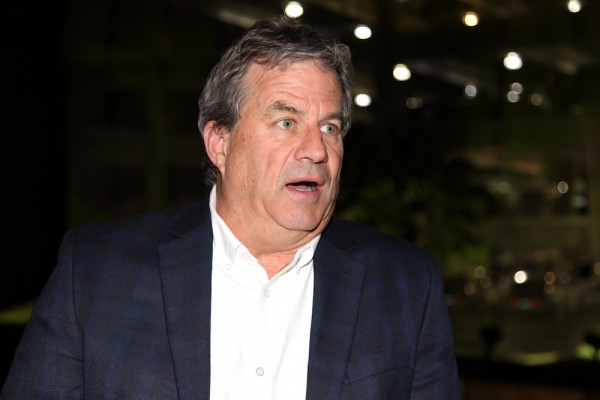Sam Quinones is a Los Angeles-based freelance journalist and author most recently of Dreamland: The True Tale of America’s Opiate Epidemic. Previously, he was a reporter with the Los Angeles Times. Before participating in the Zócalo/UCLA panel “Can Anything Stop America’s Opioid Addiction?”, he talked in the Zócalo green room about rural Kentucky, his jobs as a meat salesman and ice cream man, and his love of the accordion.
Q: What was the last road trip you went on?
A: I went to Kentucky two weeks ago to the Kentucky Association of Counties. You get this very deep feeling for how bad the opiate and heroin epidemic is. I would talk to these guys and they would say overdoses are through the roof.
Q: What was your worst subject in school?
A: Mathematics. I made the enormous, huge mistake when I was in eighth grade of switching from a very hard and disciplined math teacher, an old guy, to a young hippie-dippie teacher who didn’t teach us a damn thing. I never caught up.
Q: What’s your cure for writer’s block?
A: Talk with more people, read more, and then if it’s still a problem I try to bite off small chunks that I write without paying too much attention to where it might fit in the chronology of the story.
Q: What salad dressing best describes you?
A: [Laughs] I guess oil and vinegar.
Q: What story are you most proud to have broken?
A: Just in terms of influencing the national conversation, I’ve never written anything like Dreamland.
Q: If you could play any musical instrument, which would you choose?
A: I love the accordion.
Q: What are you reading right now?
A: Eric Foner’s book on Reconstruction.
Q: What’s the strangest job you’ve ever had?
A: I was a meat salesman for one day for a group of Scientologists in Pomona. This was in the ’70s. I was also an ice cream man, and I got attacked and cherry bombed by the rival ice cream man, a guy named Big Al who was on parole. He would’ve beaten me up, he told me, if he wasn’t on parole.
Q: What superpower would you most like to have?
A: I’d like to fly.
Q: What’s missing from our national conversation about drug addiction, if you had to choose just one thing?
A: Community. We have spent 35 years now destroying community in America in a variety of ways, and that has led to our inability to tackle a lot of problems together.
*Photo by Aaron Salcido.










